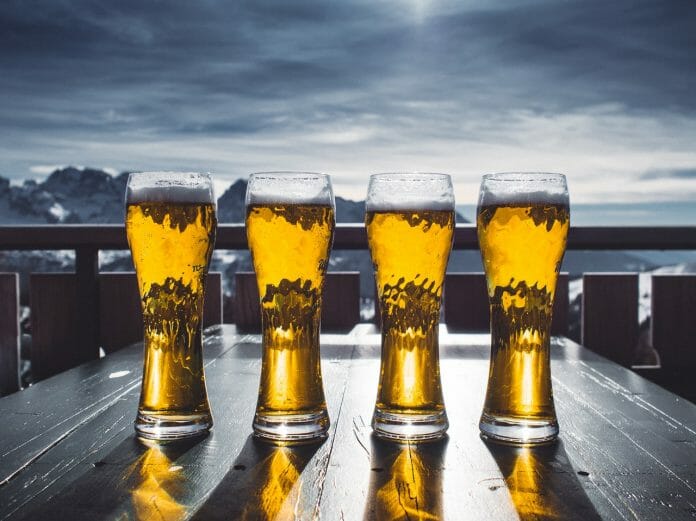Global temperatures are rising, and the prices of beer with them, so new research shows.
Amid all the forest fires, severe weather and rising water levels linked to climate change, nobody quite saw this consequence coming: more expensive beer.
But precisely this is the conclusion of an international team of researchers who recently published the findings of a study in the journal Nature Plants. They predict that an unchecked rise in temperatures would see beer prices double on average globally.
That is because of the likely impact of more frequent droughts and heat waves on one of the essential ingredients in beer: barley.
And yet scientists say rising prices for booze should be the least of our worries.
“The world is facing many life-threatening impacts of climate change, so people having to spend a bit more to drink beer may seem trivial by comparison,” said Steven Davis, the study’s co-author and an associate professor of Earth system science at University of California, Irvine.
“But there is definitely a cross-cultural appeal to beer, and not having a cool pint at the end of an increasingly common hot day just adds insult to injury.”
Davis and his team modelled scenarios based on current and expected future levels of fossil fuel burning and carbon dioxide emissions.
In the worst case scenario, the regions where barley is grown – including the northern Great Plains, Canadian prairies, Europe, Australia and the Asian steppe – are likely to see more frequent concurrent droughts and heat waves, causing declines in crop yields of between 3 and 17 percent.
The beer industry is already notorious for depending on massive amounts of water. However, scientists have already begun developing artificial hops for beer with the hope of reducing the environmental impact of the brewing process.
A pint of craft beer can require 50 pints of water merely to grow the hops, according to Charles Denby, one of two researchers who in March set out a way to create the flavours and aromas of hops without the need to use the dried flowers of the climbing plant.









